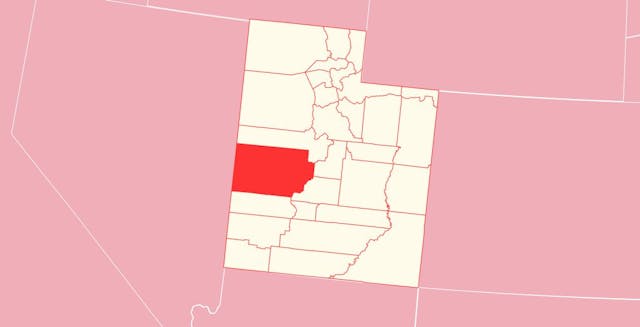Rehabs in Millard
Utah is located in Millard county, Utah. 12,503 people were living there as of the 2010 United States Census. Fillmore serves as the county seat, and Delta is the major city.
Like other regions of the United States, this area of the state struggles with substance abuse and addiction. The most misused substances are alcohol and heroin.
If you want to help a loved one who is struggling with an obsession, you must educate yourself and come to grasp what addiction is.
Read on for all the information you need to find the best Millard county rehabs and make an informed decision. Choose the program that best fits your needs or a cause that is important to you.
Substance Abuse Treatment
Substance use disorder is a chronic disorder characterized by compulsive use. Even though drinking or using drugs has major negative effects on a person's life, people may continue to do so. It badly impacts every aspect of a person's life, including their physical and mental health, family and relationships, career, and finances.
Because of how drugs affect the brain, it is very difficult for someone to stop using a substance once they get hooked. Sometimes, it is also risky to abruptly reduce using a substance without the help of a doctor. Although SUD treatment isn't always simple, it has assisted many people in beating SUD by healing these and other problems.
Despite being a long-lasting and complicated disorder, addiction is treatable. Studies have shown that customized treatment, which is a treatment that is targeted to address a person's unique emotional, physical, psychological, familial, and other features, is most beneficial.
Detox
It is good to view detox as a legitimate medical procedure. Hospitals provide a secure, private, comfortable, and encouraging setting for patients. They also provide medical professionals with training in addiction in the event of an emergency.
When reliance has taken hold, detoxing on your own may be hard. When you don't have access to clinical services, going through withdrawal on your own is hazardous. It makes it very difficult to keep your recovery.
Hospital detox enables you to receive the care and help you need while being secure and comfortable when going through acute withdrawal. You also benefit from seclusion during this extremely sensitive and emotionally taxing moment.
The process often takes a week to finish. It often occurs after an overdose or a serious medical event.
Inpatient Level
Inpatient rehabilitation usually referred to as a residential plan, offers treatment, housing, and extra services. Although you may spend a year in long-term care, the typical stay is 30 days. A long-term one is most useful for individuals who stay for at least three months.
The intensive level is best for people with severe addictions. It is good for people who also battle medical illnesses, mental health issues, or a history of relapsing.
Inpatient plans have four different types. Those include hospitalization, long- and short-term residential healing, as well as upscale or executive short-term residential healing.
Each sort of inpatient plan offers comparable clinical therapy. However, there are variations in terms of facility quality, stay duration, and overall cost.
Outpatient Level
At an outpatient level, sessions take place throughout the week at various times. Clients at this level are still able to get medicine, counseling, and care while remaining at home.
Clients pay less than they would for a round-the-clock recovery experience, though. This assistance is often given a few times per week, often for two to three hours at a time.
But all therapies at a center are delivered with the same respect, dignity, and attention to the individual that has come to characterize the method of care.
The Cost of the Rehab
The following types of centers generally affect the cost of rehab:
Location of the building
Program's scope
Provided therapies
The program's duration: it might range from 30 to 90 days, depending on the individual's needs.
Available amenities: a swimming pool, a gym on-site, massage therapy, nutrition advice, and more.
However, you still have options for high-quality treatment even if you don't have insurance and have little to no money. People without health insurance may be eligible for free care. Also, they will be eligible for sliding-scale costs at some community health centers. Moreover, certain rehab centers can provide grants to those who wish to enroll in healing.

